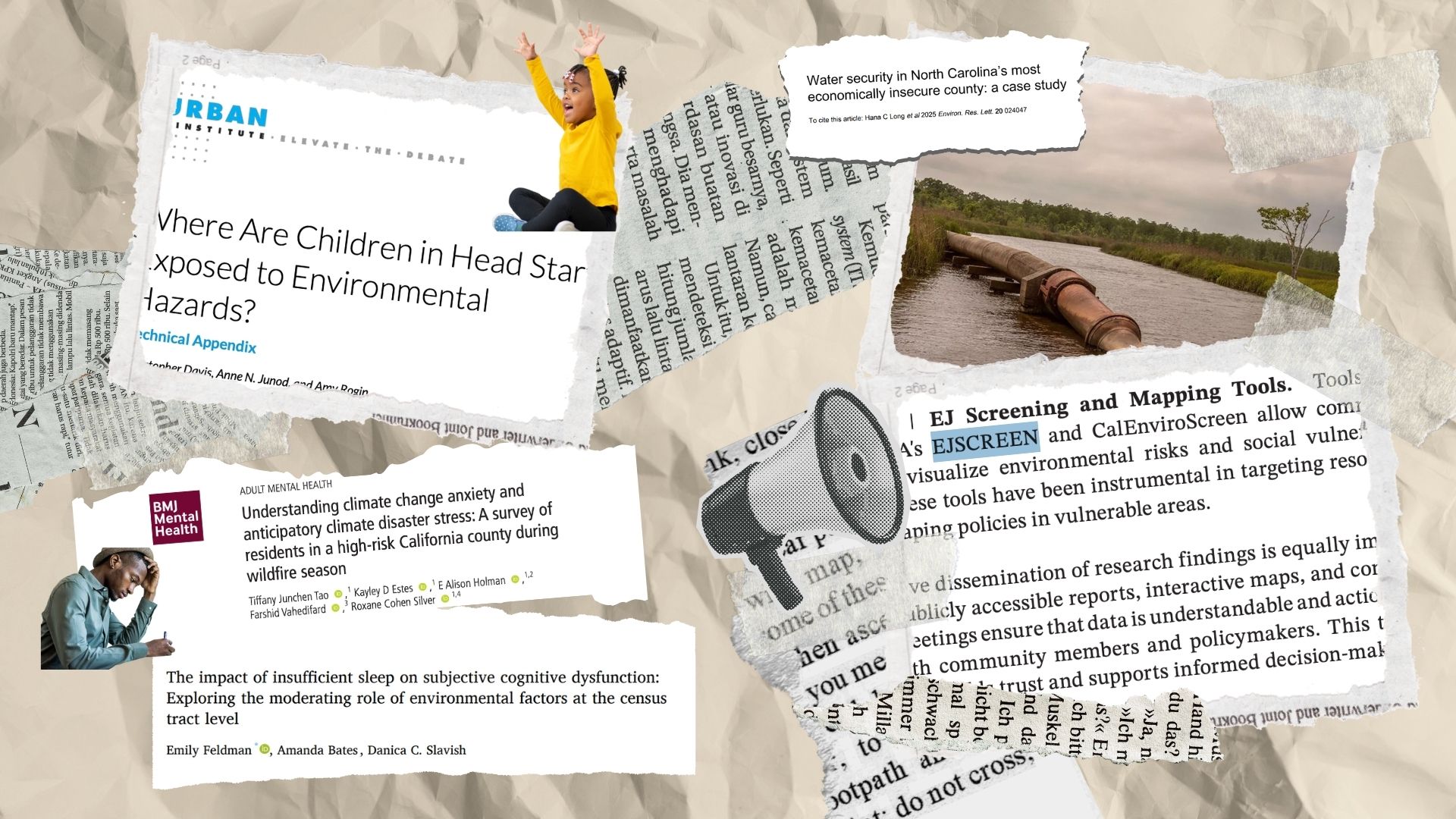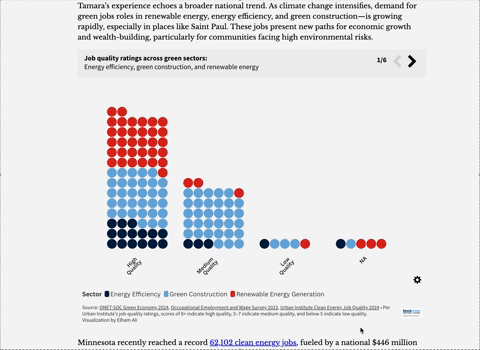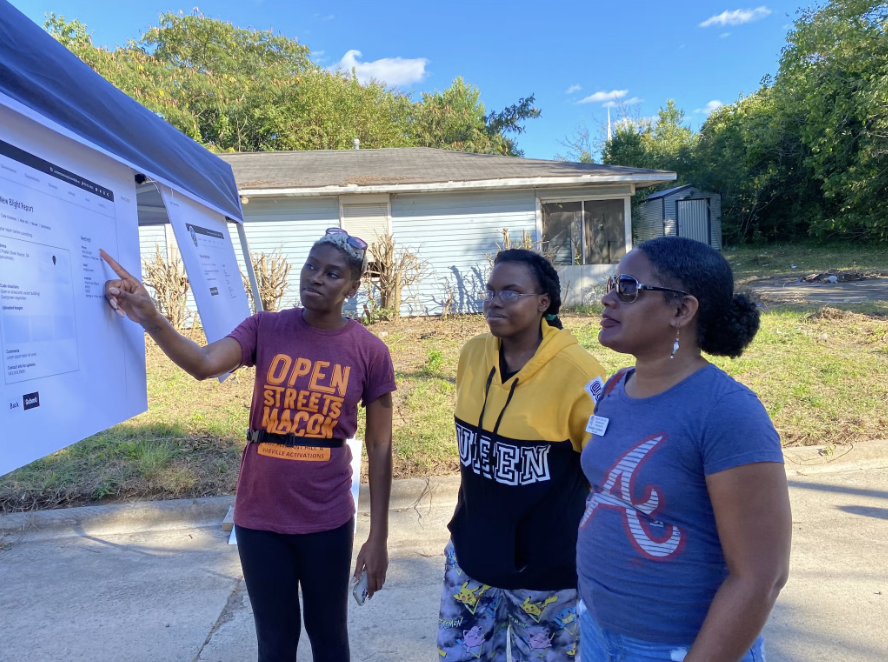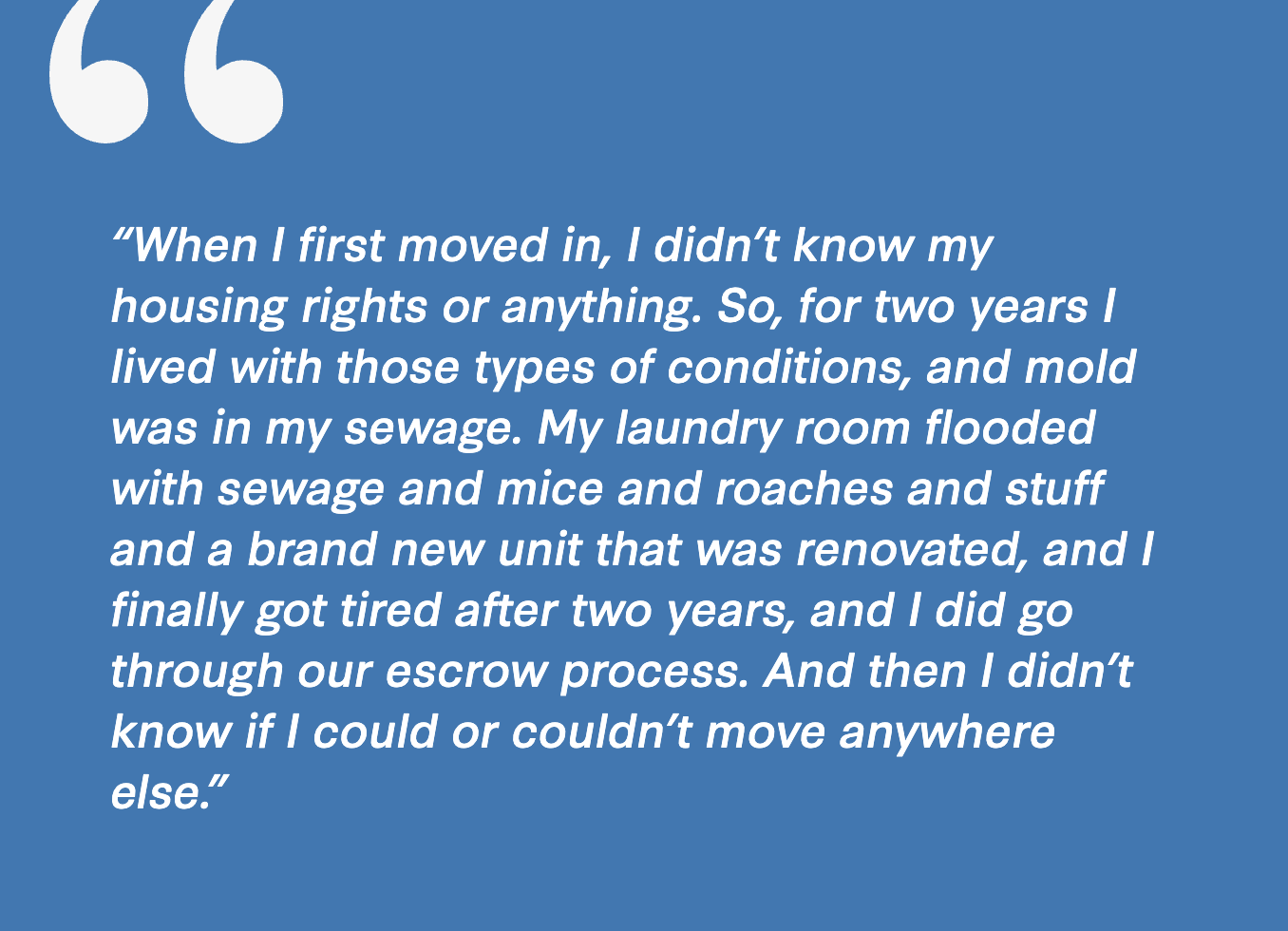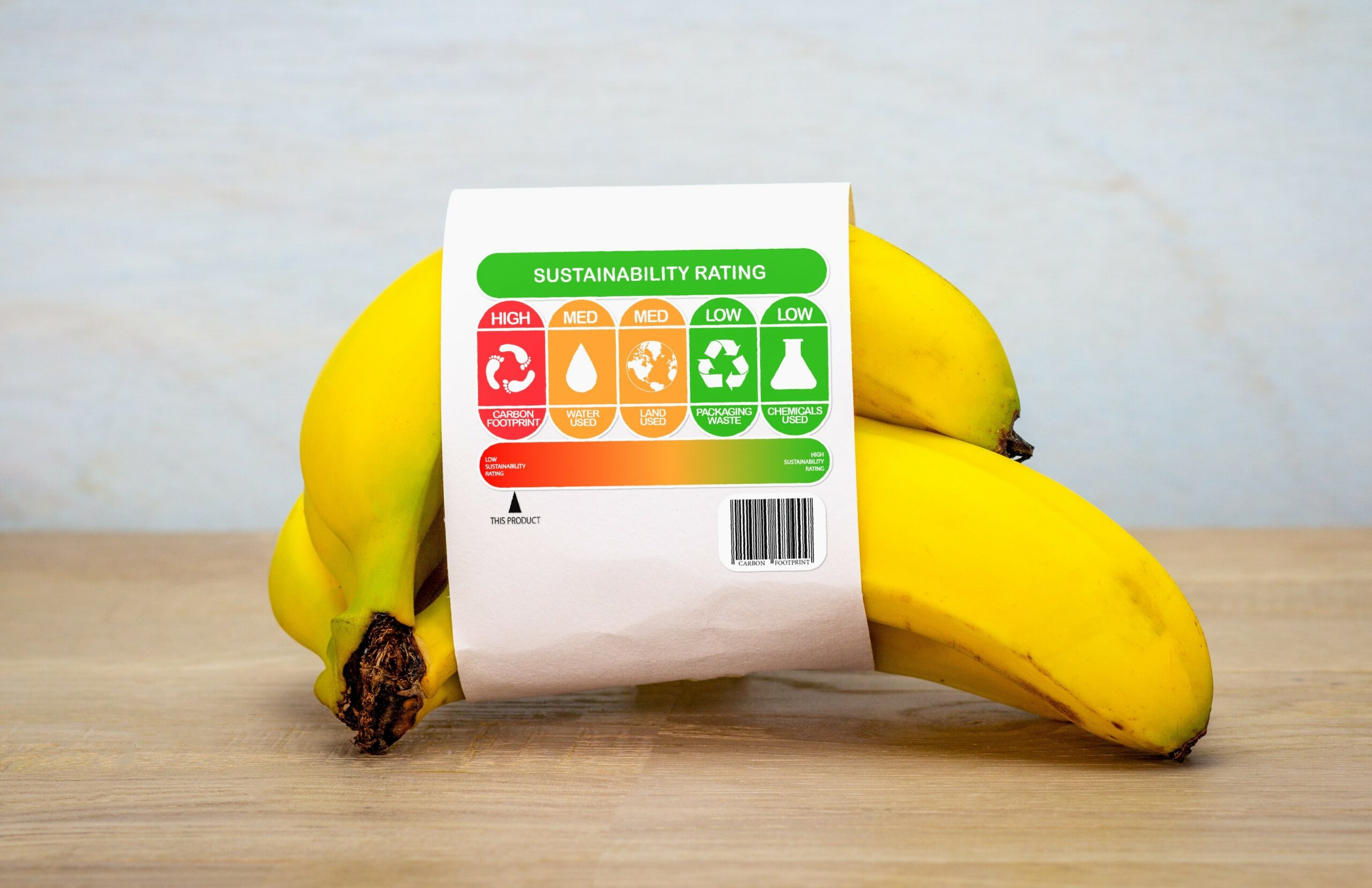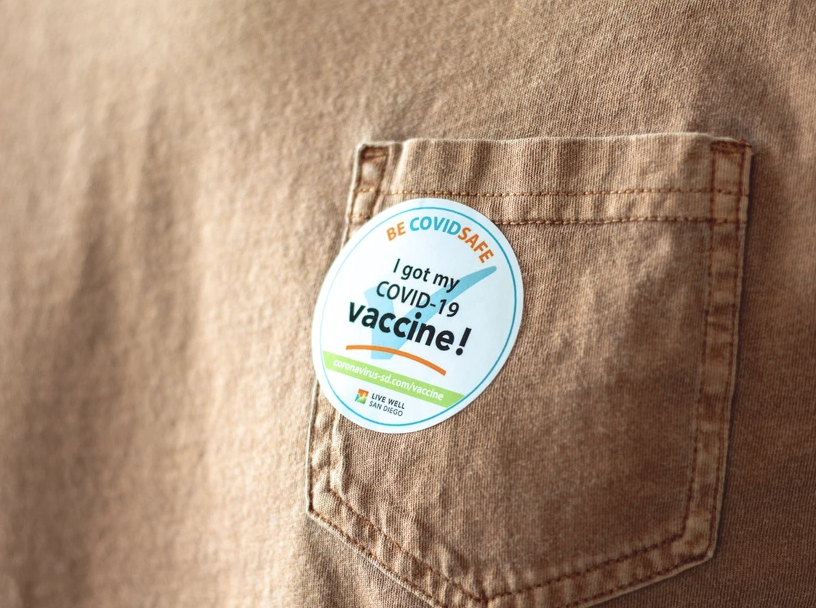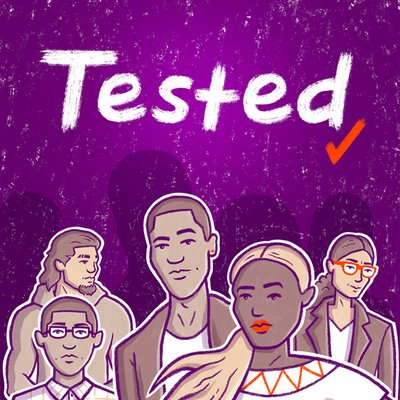Hi👋, I’m Elham.
Pronounced ill-huhm (she/ella/هي)
📊 I’m a researcher and writer who translates community voices and local insights into data experiences from interactive maps to visual stories that reveal deeper truths about our world, shift norms, and drive action.
With a decade of experience in research and evaluation, data analysis, and human-centered design in civic tech and public health, I focus on nature-based climate solutions, specifically parks and green spaces. I work with local governments to ensure climate action centers health equity, social justice, and community needs. From mapping tree canopy in Akron to increasing access to quality green jobs in Saint Paul, I help cities make informed, confident decisions that protect both people and our planet. 🌍🌿
Here’s a sample of my work.
Select Stories
I interviewed sources, analyzed data, created visuals, and wrote the social media kit for Made Possible, a Public Environmental Data Partners’ inaugural story spotlighting those who use now-defunct federal environmental justice tools to serve their communities.
Tools: R, Quarto, Highcharter, Flourish, JavaScript, HTML, CSS
Using user research from the City of Saint Paul and national datasets, I analyzed racial and income inequities in access to quality green jobs across three sectors. The findings were featured on the Beeck Center’s website, annual impact report and Full Stack Saint Paul.
Tools: R, Quarto, Highcharter, Flourish, JavaScript, HTML, CSS
I led a multimedia story blending qualitative research, survey analysis, and community audio to show how residents and local governments co-designed digital tools to tackle blight, extreme heat, and access to household energy credits in U.S. cities.
Tools: R, Highcharts, Flourish, iMovie, GarageBand
I co-authored and edited this feature about how Akron used community-centered research to address housing evictions. Through interviews and focus groups, we identified key barriers to safe housing and helped inform a new digital platform for tenants.
Tools: Atlas.ti, Miro, Thematic Analysis
Projects
Digital tools for improved HIV prevention among young adults
